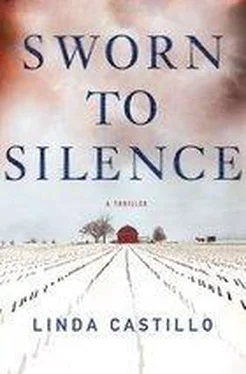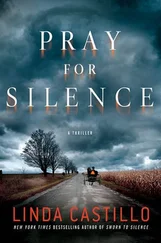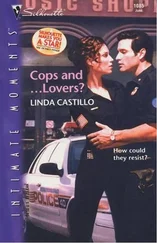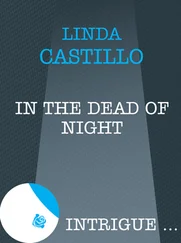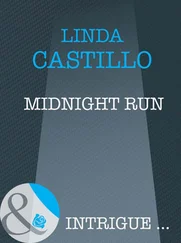Sweat breaks out on the back of my neck when I look at the crime scene and autopsy photos. The similarities to the murder this morning are undeniable. I know what the citizens of Painters Mill will think. That the Slaughterhouse Killer is back. There are only three people on this earth who know that is impossible, and one of them is me.
A knock on the door makes me jump. “It’s open.”
Mona walks in and sets a cup of coffee and a Sam’s Club–size bottle of Tylenol on my desk. Her eyes flick to the folder. “There’s a woman from Coshocton County on line one. Her daughter didn’t come home last night. Norm Johnston is on line two.”
Norm Johnston is one of six town councilmen. He’s a pushy, self-serving bastard and all-around pain in the ass. He hasn’t liked me since I busted him for a DUI last spring and dashed his hopes of climbing Painters Mill’s political ladder all the way to mayor. “Tell Norm I’ll call him back,” I say and hit line one.
“This is Belinda Horner. I haven’t heard from my daughter, Amanda, since she left to go out with her girlfriend Saturday night.” The woman is talking too fast. Her voice is breathless and raw with nerves. “I assumed she’d spent the night with Connie. She does that sometimes. But I didn’t hear from her this morning. I called and found out no one has seen her since Saturday night. I’m really getting worried.”
Today is Monday. I close my eyes, praying the body lying on a slab in the Millersburg morgue isn’t her daughter. But I have a bad feeling in my gut. “Has she stayed gone this long before, ma’am? Is this unusual behavior for her?”
“She always calls to let me know if she’s staying out.”
“When’s the last time her friend saw her?”
“Saturday night. Connie can be incredibly irresponsible.”
“Have you contacted the State Highway Patrol?”
“They told me to check with the local police department. I’m afraid she’s been in a car accident or something. I’m going to start calling hospitals next.”
I grab a pad and pen. “How old is your daughter?”
“Twenty-one.”
“What does she look like?”
She describes a pretty young woman who fits the description of the victim. “Do you have a photo?” I ask.
“I have several.”
“Can you fax the most recent one to me?”
“Um . . . I don’t have a fax machine, but my neighbor has a computer and scanner.”
“That’ll work. Scan the photo and e-mail it as an attachment. Can you do that?”
“I think so.”
As I jot her contact information, my phone beeps. I look down and see all four lines blinking wildly. I ignore them and give her my e-mail address.
My stomach is in knots by the time I hang up, but I have a sinking suspicion Belinda Horner is going to have a much worse day than me.
Mona knocks and peeks in. “I got the state highway patrol on one. Channel Seven in Columbus is on line two. Doc Coblentz is on three.”
I answer line three with a curt utterance of my name.
“I’m about to start the autopsy,” the doc says. “I thought you might want a heads-up.”
“I’ll be there in fifteen minutes.”
“You get an ID yet?”
“I’m working on something now.”
“God help the family.”
God help us all, I silently add.
I spend ten minutes returning calls and then open my e-mail program. When I hit Send/Receive, an e-mail with an attachment from J. Miller appears in my in-box.
I open the attachment and find myself staring at the image of a young woman with pretty blue eyes, dark blonde hair and a dazzling smile. The likeness is unmistakable. And I know Amanda Horner will never smile like that again.
Hitting Doc Coblentz’s direct number, I wait impatiently until he picks up. “Hold off on the autopsy.”
“I assumed you wanted a rush.”
I tap the Print key on my computer. “I do, but I think her parents will want to see her before you start cutting.”
Coblentz makes a sound of sympathy. “I don’t envy you your job.”
At this moment I hate my job with a passion I cannot describe. “I’m going to drive down to Coshocton County and pay the mother a visit. Can you give the chaplain at the hospital a call? Ask him to meet us at the morgue. We’re going to need him.”
CHAPTER 4
The Horners live in the Sherwood Forest mobile home park on Highway 83 between Keene and Clark. The sky is as hard and gray as concrete as I turn onto the gravel street. Next to me, Glock studies the map I printed before leaving.
“There’s Sebring Lane,” he says, pointing.
I make a right and see a dozen mobile homes lined up like Matchbox cars on either side of the street. “What’s the lot number?”
“Thirty-five, there at the end.”
I park the Explorer in front of a blue and white 12 by 60 Liberty mobile home circa 1980. A living room extension juts from the side, giving it a haphazard look. But the lot is well kept. A newish Ford F-150 pickup sits in the driveway. I see green curtains at the kitchen window. Residual Christmas lights encircle the storm door. An aluminum trash can overflows at the curb. An ordinary home about to be shattered.
I’d rather cut off my hand than look into Belinda Horner’s eyes and ask her to identify a body I’m certain is her daughter. But this is my job, and I don’t have a choice.
I get out and start toward the trailer. The wind penetrates my parka, icy spears driving into my skin. I shiver as I climb the steps and knock. Beside me, Glock curses the cold. The storm door swings open as if someone is expecting us. I find myself looking at a middle-aged woman with bottle-blonde hair and tired, bruised eyes. She looks like she hasn’t slept for a week.
“Mrs. Horner?” I flash my badge. “I’m Kate Burkholder, chief of police in Painters Mill.”
Her eyes dart from me to Glock, lingering on our badges. I see hope in her eyes, but that hope is tempered with fear. She knows a personal visit from the cops isn’t a good sign. “Is this about Amanda? Have you found her? Has she been hurt?”
“May we come in?” I ask.
She steps back and opens the door wider. “Where is she? Is she in some kind of trouble? Was there an accident?”
The trailer is too warm and cramped with a dozen pieces of mismatched furniture. I smell this morning’s bacon, last night’s meatloaf and the lingering remnants of hair spray. The television is tuned to a game show where some lucky contestant is bidding on a jukebox. “Are you alone, ma’am?”
She blinks at me. “My husband is at work.” Her eyes flick from me to Glock and back to me. “What’s this about? Why are you here?”
“Ma’am, I’m afraid I have some bad news.”
Something wild leaps into her eyes. Some terrible precursor to grief. She knows what I’m going to say next. I see the awful anticipation as clearly as I’ve felt it in my own heart.
“We may have found your daughter, ma’am. A young woman matching her description—”
“Found her?” A hysterical laugh squeezes from her throat. “What do you mean found her? Why isn’t she here?”
“I’m sorry, ma’am, but the woman we found is deceased.”
“No.” She raises a hand as if to fend me off. Her expression is fierce enough to stop a train. “You’re wrong. That’s not true. Someone made a mistake.”
“We’ll need for you to come down to the hospital in Millersburg and identify her.”
“No.” She chokes out a sound that is part sob, part moan. “It’s not her. It can’t be.”
I drop my gaze to the floor to give her a moment. I take those precious seconds to rein in my own emotions and try not to think about how impossible it is to stand here and fracture this woman’s world. “Is there someone we can call to be here with you, ma’am? Your husband or a family member?”
Читать дальше
